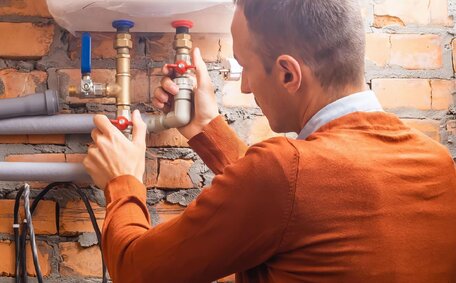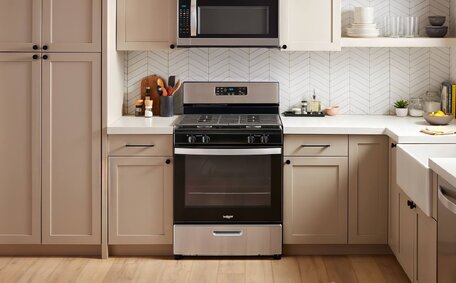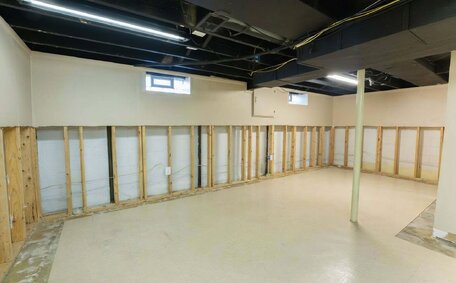Introduction to Common Plumbing Materials
Choosing the appropriate pipe fittings and materials is crucial for any plumbing project, as they determine how effectively water is carried throughout your home for consumption and other needs. Choosing the right plumbing pipes is crucial to ensure efficient operation of your bathroom’s system over time.
There are various types pipes, each with their pros and cons, that are integral to modern Australian homes. Let’s examine the key plumbing pipe choices for bathroom renovations, plumbing upgrades, or new installations:
- Copper pipe - Durable and corrosion-resistant, making it one of the best choices for extensive hot and cold water supply systems.
- PEX (cross-linked polyethylene) - A flexible and commonly used material that’s easy to install, ideal for supply pipes in hot and cold water systems, with the ability to navigate corners effortlessly.
- PVC pipes (polyvinyl chloride) - Made from sturdy plastic, these pipes are cost-effective and durable, typically employed in drainage and waste disposal systems.
- Steel and cast iron pipes - once sought after for their durability, are being replaced by longer-lasting materials, though they are still found in some older homes.
The selection of appropriate pipes for your plumbing depends on factors such as water quality, home layout, budget, Our team assesses all variables, including compatibility with plumbing fixtures, to recommend pipe types tailored to your bathroom’s specific requirements, ensuring optimal functionality.
Key Factors Influencing Plumbing Material Selection
Selecting the appropriate plumbing pipes for your home demands thorough consideration. A variety of factors, including the plumbing type and environmental conditions, influence the best choice for your specific circumstances. Below is a structured list of essential factors to consider when selecting pipes for your plumbing system.
- Water Type: The characteristics of your water supply can have a major impact on pipe material durability and performance; hence, choosing suitable pipes is essential to prevent system failure. Hard water, for instance, may cause scaling in your pipes if they’re metal, while corrosive water can lead to damage in your types plastic pipes.
- Soil Characteristics: If your plumbing project involves underground installation, it’s essential to consider the soil type and its impact on pipe durability. For example, acidic soil can cause metal pipes to corrode more quickly than neutral or alkaline soil.
- Exposure to Sunlight: Some materials, like PVC, which can degrade when exposed to UV light for extended periods. should any home plumbing materials be exposed to sunlight, ensure you choose options that resist this environmental factor.
- Local Regulations: Ensure the materials for your plumbing systems adhere to local building codes and regulations. Some areas have specific requirements that can easily dictate the choice of plumbing materials, especially for potable water supply systems.
- Durability and Water Pressure Requirements: Various pipes offer differing degrees of durability and resistance to water pressure. Choose materials that can handle the water pressure demands of your homes and can resist damage that can affect your home.
By taking these factors into account and consulting with the experts at Ashfield Plumbing, you can make an informed decision and select the ideal plumbing materials for your home.
Meeting Water Pressure and Quality Standards
Choosing plumbing materials that can endure your home’s water pressure is vital for the efficiency and longevity of water heaters. Inadequate water flow can stem from low water pressure, whereas high pressure may lead to leaks or bursts over time.
A water heater will benefit from pipes like copper and brass, a common type for the supply line, as they can handle pressures up to 170 PSI. PEX pipe, when included in home plumbing systems, is also ideal for residential properties, withstanding temperatures from freezing to 100°C without issue. Compliant residential plumbing pipe materials certified to AS/NZS standards will satisfy typical pressure demands.
It’s also crucial for plumbing systems, including tankless water heaters, to maintain water quality and prevent contamination. Copper and stainless steel pipes are preferred for potable supplies thanks to non-reactivity and corrosion resistance. We advise that, for most households, copper is typically more advantageous than PEX as its clean interior is less prone to bacterial build-up, making it safe for drinking water.
Partnering with licenced plumbers like Ashfield Plumbing ensures your system meets the latest pressure and quality regulations. We stay informed on the best products available and methods for safe, high-performing plumbing tailored to your property’s needs.
Considering Environmental Impact
When selecting plumbing materials, it’s important to consider the environmental impact. Copper and PEX are commonly chosen over PVC because of their several ecological benefits.
Copper, which is highly recyclable due to its reusability, helps minimise environmental impact with over 90% recoverable and reusable. PEX can also be recycled and has a smaller carbon footprint compared to PVC in production. PVC on the other hand can release toxic chemicals if exposed to high temperatures during manufacture or incineration.
Locally, we must also consider the sustainability of material sources and disposal methods. At Ashfield Plumbing, we prioritise plumbing supplies like copper and PEX that are reusable, non-toxic and responsibly made. We can advise on the best eco-friendly options for your next plumbing project.
Balancing Cost and Durability
It’s essential to consider the balance between initial costs and the longevity and resilience of plumbing materials. The cost-effectiveness of pipe materials ultimately hinges on your projected timeline.
Copper pipes, although more costly initially, offer extensive use compared to other materials, may present a higher upfront cost but last between 50 to 70 years with appropriate upkeep. For pipe replacements, note that Plastic piping like PEX and PVC can save you money upfront but lasts just 20-30 years. While immediate cost savings are apparent, potential long-term repairs or replacements may lessen their overall value.
In our experience at Ashfield Plumbing, opting for the best plumbing materials that we can use to stand the test of time is usually worth the investment. We’ll evaluate your requirements, including water type, pressure, flow rate and water applications, to suggest the most apposite and long-lasting solution for your domicile and finances.
Understanding Certifications and Compliance
An important step in selecting plumbing materials is to identify recognised certifications that ensure quality, safety, and regulatory compliance. In Australia, the WaterMark certification scheme is the leading indicator for plumbing products. WaterMark approval means materials meet national health, safety, and performance standards ensuring your plumbing aligns with AS/NZS specifications.
Compliance with the Plumbing Code of Australia is also mandatory. This ensures pipe plumbing installations adhere to stringent practises that prevent contamination and protect public health. The PCA dictates requirements across design, materials, maintenance and inspection.
Here in the Ashfield area, all plumbing projects must comply with local council codes as well, ensuring the correct materials used for plumbing pipes are chosen. Our team at Ashfield Plumbing stays up to date on the latest rules and only uses WaterMark approved plumbing fittings fixtures that meet PCA guidelines. This guarantees that the copper or PEX pipes, chosen for your specific needs, are regulator approved and 100% safe.
Next Steps for Your Plumbing Project
Knowing which kind pipe is most suitable is key for any plumbing project. Now that you understand the factors to consider and the options available, the next step is to reach out to the experts.
The skilled team at Ashfield Plumbing can guide you in choosing the plumbing materials best suited for your project. We consider your needs and home set up to recommend tailored solutions. Whether a small repair or large-scale renovation, our licenced plumbers have you covered.
Begin by calling, emailing, or arranging an appointment with us today. Our specialists are prepared to assess your current plumbing and offer expert advice on appropriate materials.
With our local expertise, compliance to all standards, and use of certified products, you can trust your plumbing project is in safe hands. For quick support with material selection or other plumbing requirements, Ashfield Plumbing delivers reliable, high-quality results.
Ashfield Plumbing 1300 349 338 jobs@ashfieldplumbingservices.com.au






